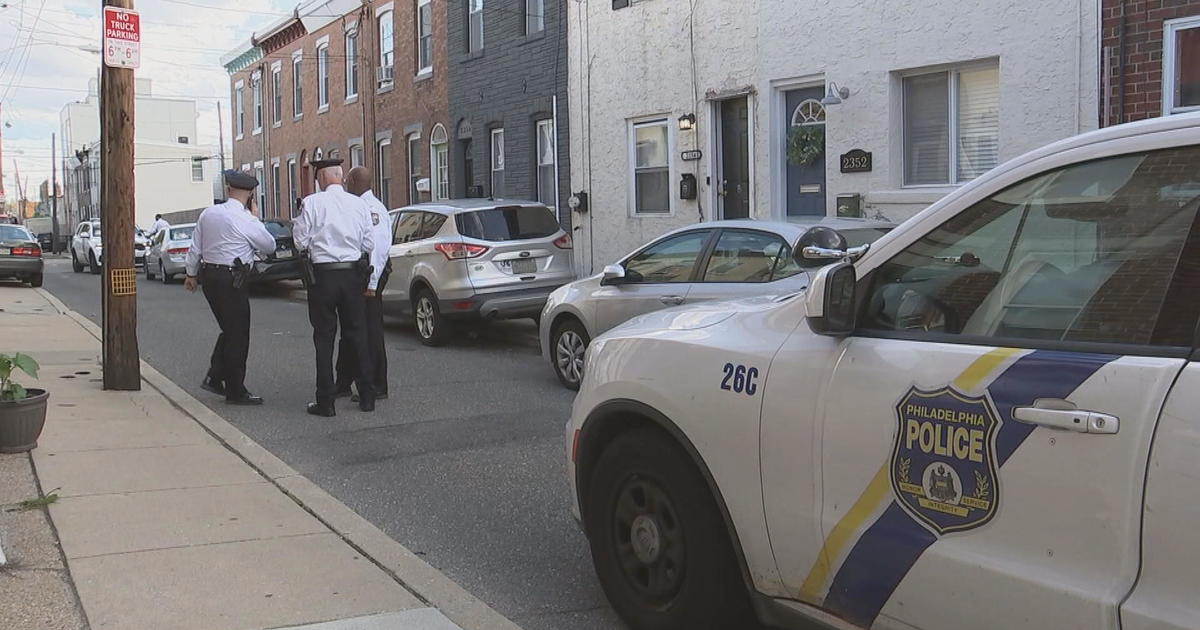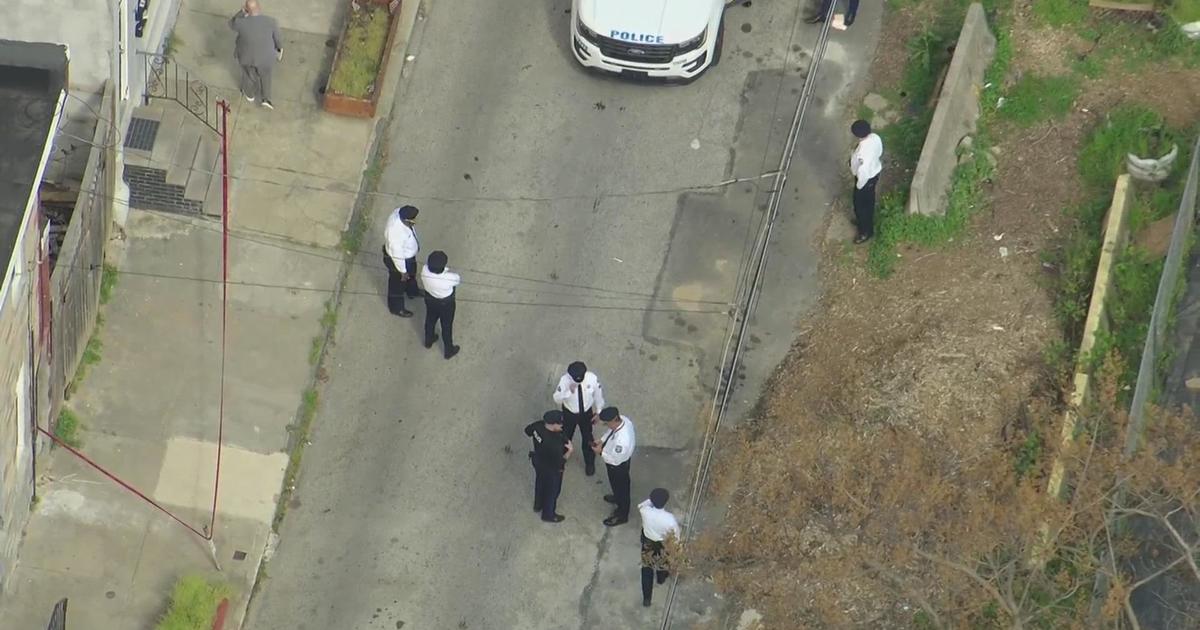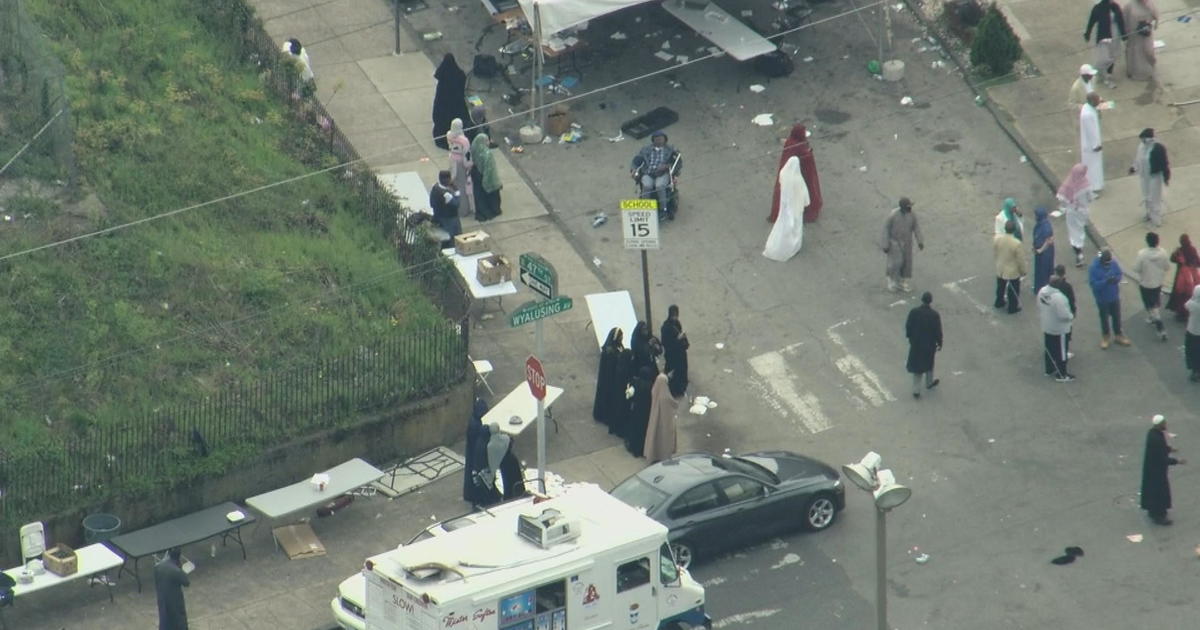Study: Don't Trust Your Memory If You're High On Marijuana
PHILADELPHIA (CNN) -- You're on a train chatting with a friend sitting across from you, both of you are high from smoking marijuana. Suddenly you see a fight break out on the platform below. A security guard is in a tussle with a man who is kicking him.
After the man is subdued and removed from the scene, your companion excitedly tells you what they saw, only to add a detail you don't recall: There was a police dog on the scene.
Would your memories then include a dog as part of the fight? Mostly likely yes, especially if you're high.
A new study published Monday found people who took just one hit of weed doubled their number of "false memories" in a virtual reality scenario compared to those who puffed on a placebo, said study author Johannes Ramaekers, a professor of psychopharmacology at Maastricht University in The Netherlands.
A false memory is a recollection of something that didn't occur or a memory that is different from the way it actually happened, often triggered by suggestions from others.
"We are all prone to the formation of false memories, independent of cannabis use," Ramaekers said. "The susceptibility for false memory, however, increases with cannabis. Under cannabis, users can easily accept fake truths for true memory."
A potential impact
Why does this matter? With state after state considering legalizing marijuana, a rise in false memories could play an increasingly larger role in criminal matters, said co-author Elizabeth Loftus, a professor of psychological science in the department of criminology at the University of California, Irvine.
"This new work is suggesting authorities need to be extra careful when interviewing somebody," Loftus said. They should consider removing "them from a situation where they might be exposed to suggestive information that could contaminate their memory."
And there's the possible creation of false memories that affect friends, family and work colleagues.
"Formation of false memories may alter the interpretation of work-related activities and social interactions with others," Ramaekers said.
"There are lots of situations where somebody's memory matters," Loftus said. "For example, a family dispute such as two siblings arguing about what happened in the past over a Thanksgiving table."
Creating a false memory
"It's very easy to distort memory for the details of an event," said Loftus, who discovered the psychological concept called the "misinformation effect" and has testified or consulted in such major trials such as O.J. Simpson, Ted Bundy and the Menendez brothers.
In numerous studies over decades, Loftus has shown that when witnesses are given misinformation about something they saw, such as a mistake in the details, they will remember things that were only suggested to them after the event was completely over.
In the 1990s, she began to explore if it was possible to implant entirely false memories.
"It's one thing to make people think the perpetrator had a brown jacket instead of a green jacket, but could you plant entirely false 'rich' memories into the mind for something that didn't happen?" Loftus asked.
"In one of the first studies done on this [subject], we made people remember that they were lost in a shopping mall as a child and had to be rescued and reunited with their family even though it never happened," she said.
Other researchers went so far as to implant memories of being "attacked by a vicious animal as a child; having a serious indoor or outdoor accident as a child; even witnessing somebody being demonically possessed," Loftus said.
Could this happen to us all the time? Not likely, Loftus said.
"It's very easy to distort memory for the details of an event," she said. "It takes a lot more effort to plant one of these rich false memories."
Do real memories come back?
In addition to witnessing the virtual train platform fight, subjects in the current experiment also underwent a first-person virtual reality scenario in which they became a student in need of money who steals a purse. In a third experiment, they were asked to recall words they had never been given.
"This study showed that cannabis increased the number of false memories across all three memory paradigms," Ramaekers said.
While science isn't completely sure why, researchers suspect that cannabis activates receptors in the hippocampus, the memory center of the brain, possibly producing "fragmentation of thought, loosening of associations and heightened distractibility," he said.
However, when asked to recall the words or events a week later, the study found no real difference between cannabis users and the control group. They were able to recall the events as they actually occurred.
"The findings suggest that investigative interviewers should minimize the questioning of cannabis-intoxicated eyewitnesses and suspects, and instead wait until the first possible time after sobriety is reached," Ramaekers said.
The same advice might apply to family and friends, especially for habitual users of weed.
There is evidence "that chronic use of cannabis can produce persisting decline of cognitive [or] memory function, even after prolonged abstinence and no THC in blood," Ramaekers said.
The-CNN-Wire™ & © 2020 Cable News Network, Inc., a WarnerMedia Company. All rights reserved.



